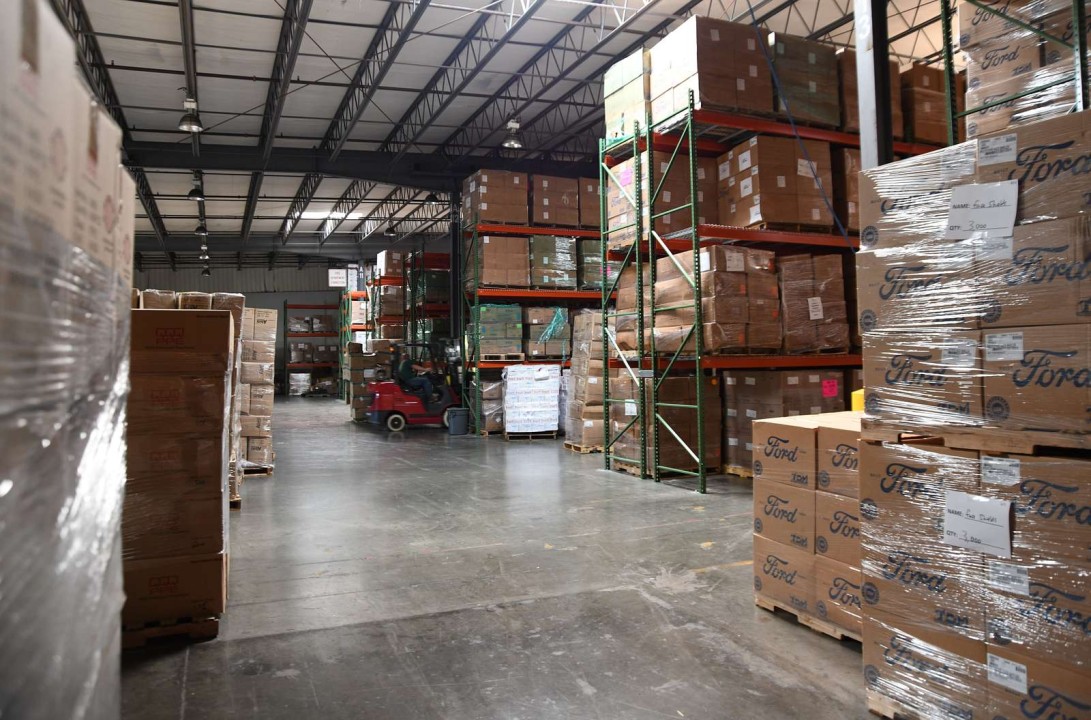A business capable of keeping pace with changing business environments will always win the race. However, businesses with small warehouses often deal with understocking certain goods, which restricts their reach in multiple cities or states. On top of that, managing warehouse operations in-house can be challenging and costly.
One of the most effective solutions to this problem is outsourcing warehouse and distribution services to third-party logistics (3PL) providers. Besides understanding all its advantages, understanding the signs that your business requires outsourcing benefits is of utmost importance. In this blog, we will explore when and why to consider outsourcing warehouse operations and provide guidance on selecting the right partner.
When to Consider Outsourcing Warehouse Operations?
1. Rapid Business Growth:
If your business is experiencing a rapid increase in product demand but your warehouse space does not allow you to keep large volumes of shipments in neat condition, then it is time to transition to more established warehouse services. Third-party logistics providers offer instant access to established warehousing infrastructure and expertise.
2. Seasonal Demands:
Companies with seasonal peaks often struggle with space and staffing. 3PL warehouse melbourne can adjust resources according to seasonal needs, reducing overhead during slower periods.
3. Expansion into New Cities or States:
If you are planning to enter into new geographical locations, be it cities or states, you may require distribution centres closer to these cities or states. Outsourcing to a 3PL with multiple locations can simplify this expansion and ensure safe product deliveries.
4. Need for Smart technologies:
Businesses wanting to stand out in the market must leverage technology in all its forms. Organising and running modern warehousing demands knowledge of adapting to new tools and technologies, setting aside the costs.
As a business owner, understanding new technologies and experimenting with them takes time, which can be expensive during operations. For this reason, 3PL services use quick and reliable inventory management, order fulfilment, and logistics tracking technologies. One of the best things is that they invest continuously in the latest technologies, giving you access without the high upfront costs.
5. Allows you to Focus on Other Business Departments :
If warehousing is not one of your core strengths, outsourcing allows you to focus on areas such as product development, sales, and customer service.
Why Outsource Warehouse and Distribution Operations?
1. Cost Saving:
Outsourcing can significantly reduce capital expenses. You can easily avoid the costs of leasing or buying warehouse space, technology investments, and hiring specialised staff. With 3PL assistance in warehouse and distribution, you only pay for the space and services you use. Additionally, there are no operational costs of rent, paying utilities, or hiring staff.
2. Scalability:
Many 3PL providers operate multiple warehousing and distribution facilities across different regions, allowing you to store flexible stocks close to the customer base. Apart from this, kitting, packaging, assembly, and returns management services align well if you are looking for customisation benefits based on customer demands.
3. Expertise and Experience:
3PLs bring specialised knowledge and experience in logistics and supply chain management that can improve efficiency and reduce errors.
4. Improved Service Levels:
With a wide network base, 3PLs can often fulfil and ship orders more quickly and accurately, improving customer satisfaction.
5. Risk Management:
Outsourcing can reduce risk, as 3PL services often include managing certain logistics risks. These can include handling compliance with state regulations, uncertainties of a lower workforce, and delays in the shipping process.
How to Choose the Right Outsourcing Partner?
Here are some ways to find a reputable 3Pl provider in Melbourne or its other suburbs.
1. Assess Compatibility:
Ensure the 3PL’s capabilities match your company’s needs. Consider their expertise in your specific industry and whether their technology is compatible with yours.
2. Evaluate Their Network:
Look at the locations of their warehouses and understand how they transport the shipments on time. A good partner should enable you to reach your target markets effectively.
3. Check for Scalability and Flexibility:
Your chosen 3PL should be able to scale operations quickly in response to your business’s growth or seasonal changes.
4. Inspect Technology and Systems:
Your 3PL partner’s technology stack should be compatible with your systems and offer you access to all the minor and major data in real-time.
5. Consider Their Reputation:
Research their track record and client testimonials. Longevity and reputation in the industry can strongly indicate reliability and quality of service.
6. Understand Their Pricing Structure:
Ensure clarity in their pricing structure to avoid hidden costs. Competitive pricing is important, but it should not compromise service quality.
7. Assess the Quality of Customer Service:
Effective communication and responsive customer service are crucial. You want a partner who values your business and is proactive in managing any issues that arise.
8. Security and Compliance:
Make sure they follow industry-standard security practices and are complying with relevant regulations, especially if you operate in a regulated industry.
Final Words
Outsourcing warehouse and distribution operations can lead to significant strategic benefits for businesses looking to optimise their supply chain, reduce costs, and focus more intently on their core competencies.
Companies can find a partner that only exceeds their operational needs by understanding when to outsource, recognising the potential benefits, and carefully selecting the right partner. Choose Carrabba’s Group for efficient logistics operations at reasonable prices.

